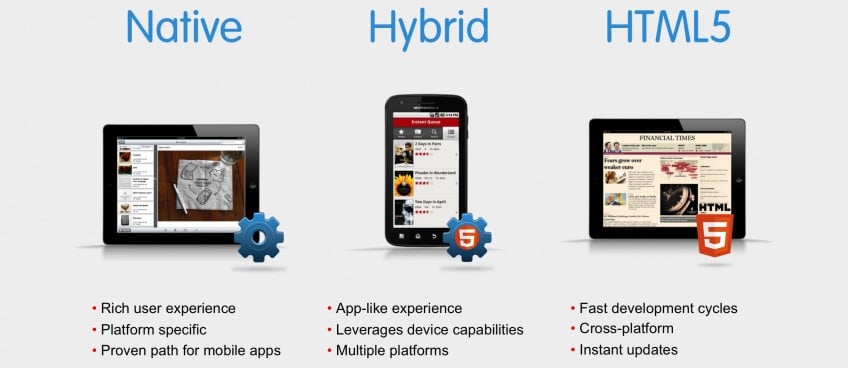Every few weeks one of our our clients or a prospect will ask us to scope a native app. Usually we talk them out of it.
It’s not that we have anything against apps. We love them, and have great fun building them for our clients. The reason is that a responsive HTML5 website (ie one that adjusts to look great on all device sizes) is usually a better, cheaper solution. Here’s a few questions to help you decide whether you really need that app.
Do you want to harness smart phone functionality?
The real power of native apps is that they can take control of your phone’s camera, GPS, microphone etc. HTML 5 websites are getting better at doing this all the time, but if you need this functionality then there’s a good chance a native app may be right for you.
How will your audience access it?
Native apps only work on the platform they’re built for. If your audience is split across iOS (iPhone), Android and possibly other platforms, then you’re looking at building at least two apps. If you want it to be accessible to desktop users as well, then you’ll still need to build a website too. This means much more time and money upfront to build, plus higher ongoing maintenance costs.
If the real reason you want an app is because you want to have an easily accessible, cool looking icon sitting on your audience’s smartphone, then a clever responsive website is likely to be a better, more cost-effective solution. Check out forecast.io or Sydney Morning Herald’s site (from your mobile) for some cool examples of universally accessible websites that imitate apps.
How much time and money do you want to spend?
Mainly because of reasons above, native apps are generally more expensive than responsive sites. They also take time to get accepted into the relevant app stores (and can be declined, if they don’t meet guidelines). Note that any updates also must go through the app-acceptance process.
Is your design complex, or targeted closely to each of your user’s preferences?
A native app is still better at delivering complex design and user experience, especially if you want to target it specifically to each user’s personal tastes. Once again, websites are improving in this regard, so it pays to discuss this point.
How will your audience find it?
Having an app in the Apple store can be a great way to get exposure, especially if you’re one of the top downloaded apps in a regional category (relatively easy in NZ and Australia). But then if you want internet search visibility or to drive traffic to your website, a responsive website will be better.
Do you want to collect money through it?
Repeat payments are more easily processed via an app, which is great especially if they’re small and regular. Just remember that Apple takes a cut of in-app spend – so for larger, less frequent purchasing it may be more cost-effective to process through your website.
Conclusion: It depends on your requirements
Native apps offer some powerful advantages over websites. But HTML5 is great too, and getting better all the time. When we ask clients why they want an app, often the top reason is “because they’re cool”. We can’t fault this logic – apps are cool – but if this is the only reason, then a responsive website that imitates an app is a cooler solution.
If you found yourself with one boot in each camp when going through the questions above, then it’s possible a hybrid solution may be best for you. Contact us to find out more.

